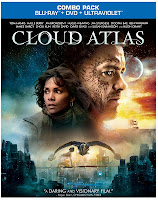the traveler's resource guide to festivals & films
a FestivalTravelNetwork.com site
part of Insider Media llc.
Reviews
Art Reviews: Met Museum, Frick Collection, Whitney Museum
- Details
- Parent Category: Film and the Arts
- Category: Reviews
- Published on Monday, 20 May 2013 00:35
- Written by Kevin Filipski
Metropolitan Museum of Art
Impressionism, Fashion and Modernity
Through May 27, 2013
Velázquez’s Portrait of Duke Francesco I d'Este—A Masterpiece from the Galleria Estense, Modena
Through July 14, 2013
The Frick Collection
Piero della Francesca in America
Through May 19, 2013
The Impressionist Line from Degas to Toulouse-Lautrec: Drawings and Prints from the Clark
Through June 16, 2013
Whitney Museum of American Art
American Legends: From Calder to O’Keeffe
Ongoing
 |
| Monet's Women in the Garden |
 |
| Renoir's Pinning the Hat |
 |
| Hopper's Early Sunday Morning |
Metropolitan Museum of Art
1000 Fifth Avenue
New York, NY
http://metmuseum.org
The Frick Collection
1 East 70th Street
New York, NY
http://frick.org
Whitney Museum of American Art
945 Madison Avenue, New York, NY
http://whitney.org
May '13 Digital Week III
- Details
- Parent Category: Film and the Arts
- Category: Reviews
- Published on Friday, 17 May 2013 20:55
- Written by Kevin Filipski
Full Frontal
Comic Review: Bikini Cowboy
- Details
- Parent Category: Film and the Arts
- Category: Reviews
- Published on Friday, 17 May 2013 15:14
- Written by Renzo Adler
 It’s time for a history lesson, kids. According to the information zeitgeist that is Wikipedia, the bikini was invented in 1946 by Louis Réard. Monsieur Réard named the two-piece after the Bikini Atoll, home to the world changing nuclear bomb tests. So what is a woman doing wearing a bikini and carrying a surfboard in the American west in 1812?
It’s time for a history lesson, kids. According to the information zeitgeist that is Wikipedia, the bikini was invented in 1946 by Louis Réard. Monsieur Réard named the two-piece after the Bikini Atoll, home to the world changing nuclear bomb tests. So what is a woman doing wearing a bikini and carrying a surfboard in the American west in 1812?
Bikini Cowboy by Fresherluke initially grabbed me because its title and premise sounded like cheap schlock, but I stuck with it because it was funny, charming, and has some genuine pathos. Whisky Jill is the titular Cowboy that wanders the desert with her anachronistic clothes and surfboard. Hints are dropped that Jill is not of this era, but thankfully, the story never drags out tired tropes from time traveling tales. Jill rescues a young boy named Rod that is wanted by some dangerous men because he possesses a strange power. Together the two evade Rod’s greedy pursuers, while Jill is dogged by a viscous Marshall with a predilection for quoting Bible verse.
One of the great things about this story is that there are all sorts of little touches of the strange and fantastic, but the story doesn’t feel the need to explain them, they just are. Some might complain that this gives the story an anything goes set of rules, but really it keeps things fun and charming.
Weber’s art has a great sense of motion, so it’s no surprise that he also works in the animation industry. The character’s expressions flow from panel to panel, everyone is very elastic, and Jill in particular is posed like a coiled spring. The sketch like quality of the art helps to give the western locales and characters a sense of grit, though there are few parts where I felt like the line-work could be a bit more refined.
The characters of Whisky Jill and Rod are not extremely complex, but that’s okay because they’re very charming and the way they help each other and get to know one another doesn’t feel forced. Rod never feels like just some kid that follows the hero and Jill isn’t simply talking eye-candy. The dangers the two face, and the joys they discover bring them closer in a way that feels natural.
The story also frequently touches upon themes related to faith, what with the Bible quoting villain, and Jill’s quest. There is a potential for someone to have a knee-jerk reaction and think that the story is saying “Christianity bad, animism good,” but that aspect of the story is more nuanced. I don’t want to get into spoilers, so I’ll just say that the story makes a distinction between having a character be guided by faith, and having a character use faith as a justification for their actions.
Bikini Cowboy is the sort of story that could have just been some cheap thrills, but turned out to have, fun characters, tense action, and genuine charm. It is definitely worth checking out. Bikini Cowboy is currently available from Comixology for a pittance as part of their Comixology Submit program, which allows indie creators to self publish their works through Comixology's online service.
Film Review: "Star Trek Into Darkness" Is a Cluttered Letdown
- Details
- Parent Category: Film and the Arts
- Category: Reviews
- Published on Friday, 17 May 2013 12:23
- Written by Matt Oakes
Directed by J.J. Abrams
Starring Chris Pine, Zachary Quinto, Benedict Cumberbatch, Karl Urban, Zoe Saldana, Simon Pegg, John Cho, Anton Yelchin, Bruce Greenwood and Alice Eve
Sci-Fi, Action, Adventure
132 Mins
PG-13
More Articles...
Newsletter Sign Up





















